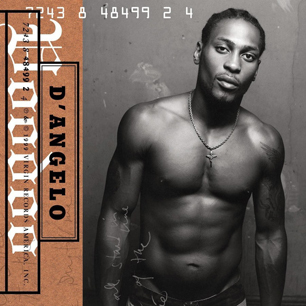News
Well, we’ve finally, finally got our entire archive over here. It was brutal, but finally finished. To celebrate, I’ve posted a bunch of things from the archive this week, including:
—Robert Boyd with a comment on TCJ’s mainstream coverage.
—Caroline Small on the fecundity of Alan Moore’s Swamp Thing.
—me on why women like boy’s love.
— Miriam Libicki on Terry Moore, Jaime Hernandez, and soap operas.
—A voices from the archive post highlighting a comment by Miriam Libicki on Lost Girls.
On HU
I talk about dick vs. fanny in male genre comics.
Ng Suat Tong on Alison Bechdel’s Are You My Mother?
Qiana Whitted on what cigarette warning labels tell us about comics.
Charles Reece with a two part explanation of why the Marston/Peter Wonder Woman is a fascist tool. part one; part two.
With Charles’ pieces, we’ve finally completed our Marston/Peter Wonder Woman roundtable. The index for the entire thing is here.
I talk about the Zen of John Porcellino’s Christmas Eve.
Utilitarians Everywhere
At Splice Today I review Rye Rye’s new album.
Also at Splice I ask why the fuck NATO exists, and why won’t they leave us alone.
Other Links
Isaac Butler interviews Laura Miller on fandom.
Alyssa Rosenberg on D’Angelo’s body issues.


One of the great quotes from Laura Miller’s interview:
Part of it is that [fandom is] both aggrieved at being marginalized and really invested in being marginalized. So they don’t really want to be accepted. They want to be angry and self-righteous about not being accepted.
Thanks for posting that link.
I’d add to that that the real problem is that often they aren’t actually marginalized. Comics fans and geek culture fans just don’t face institutional persecution in any meaningful sense.
What pisses them off, it seems to me, is that they aren’t accepted on the terms with which they want to be accepted.
For example, Maus is embraced by the wider culture, but it isn’t as a comics masterpiece, it’s as a compelling Holocaust memoir. Graphic novels are now being treated with an open mind by MSM book reviewers, but that shift was far more due to work by Alan Moore, Alison Bechdel, and Neil Gaiman than the efforts of the Hernandez brothers and Chester Brown.
To pick up from the thread yesterday, you can see it with foreign-film fans. The pictures with crossover appeal, like A Man and a Woman, Das Boot, and Amelie, are generally treated with disdain.
It’s there with other kinds of factions, too. I remember when Kathryn Bigelow won the Oscar for Best Director–the first woman to do so–and a lot of feminist writers were complaining about it. They were upset that Bigelow, a specialist in the “male” genre of action-adventure films, had achieved that landmark rather than someone like Jane Campion.
I think the feminist comparison is somewhat telling, though. I mean, women do actually experience discrimination, and there are gendered issues surrounding genre which can map onto contempt for women. Pointing out that action movies tend to be more validated than romance, and that that has gendered implications, is a pretty legitimate point, it seems to me. It’s not just sour grapes or subcultural whining — there are legitimate reasons to question the way gender influences aesthetics and genre and to talk about how that ties into prejudice against women.
But what are the larger issues at stake in terms of whether more or less people read more or less comics, or the right comics? If Maus is appreciated for formal brilliance or as another Holocaust narrative?
It’s similar to pointing out that television is clueless about metal. If you know something about metal, it’s funny and a little irritating, but it certainly doesn’t mean that metalheads like myself are oppressed in any meaningful sense. It just means that you happen to have an aesthetic taste that isn’t quite mainstream. Which is fine, but it doesn’t make you part of an underclass.
Your Boyd link goes to Caro.
I certainly agree that it’s worthwhile to discuss why certain genres are treated as more valid than others, and how this can be due to gender identifications. But the attacks on the accolades for Bigelow from certain writers went way beyond that into personal insults. A good example is this article. The author sneers at Bigelow as “Miss Kathy” and “the ‘Transvestite of Directors’,” and the title asks, “Kathryn Bigelow: Feminist pioneer or tough guy in drag?” There was a desire to deny Bigelow any legitimacy at all.
Wow. Well, okay, yes, that’s repulsive…not least because of the transphobia.
I’m just reading Janice Raymond at the moment, which is making me very depressed.
The actual content of the Laura Miller interview seems overly sensitive to the complaints of superhero fandom though. Hasn’t that problem been around since the 80s at least? People like Tucker needle those people for fun.
Oh…thanks Charles. Fixed the link.